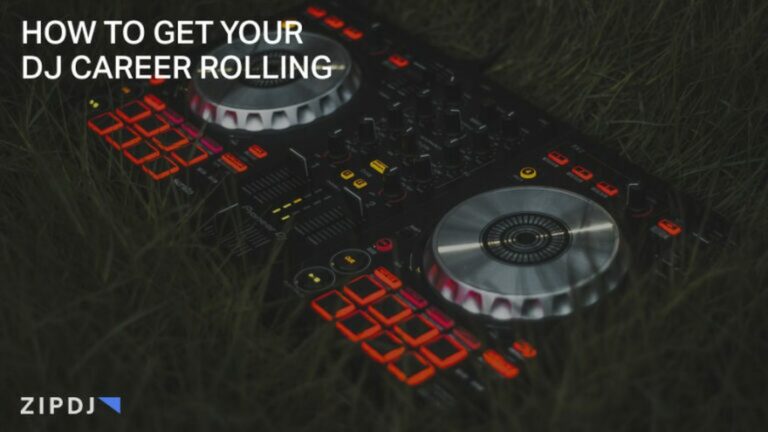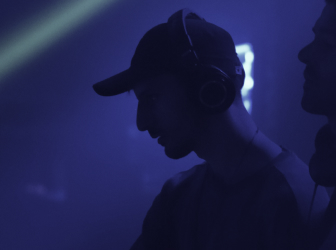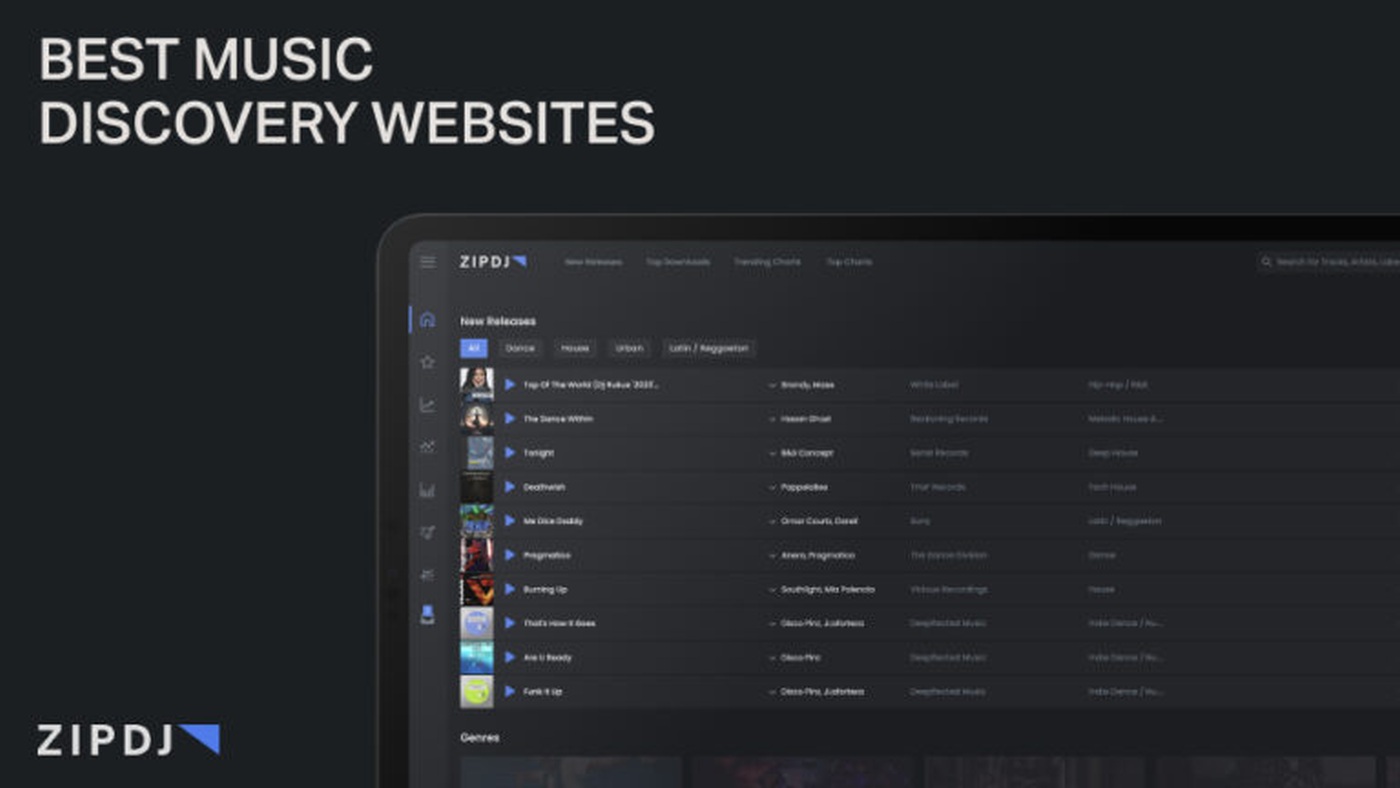How To Get Your DJ Career Rolling In 2025

Getting your DJ career off the ground requires hard work, hands-on experience, and the ability to network with promoters.
You’ll also need to invest in basic equipment, such as DJ mixing software and hardware, and a library of music to use for your DJ sets.
Continue reading, and we’ll break down everything you need to know to launch your DJ career and book new gigs.

How To Get Your DJ Career Rolling In 2025 (Step-By-Step)
Whether you’re hoping to become a club DJ at the best venues in the world or a virtual DJ online, there are several steps you need to consider.
We’ve ensured this guide covers all the basics you need to know, as well as essential advice on getting the attention of venues.
Without further ado, let’s explore how to get your DJ career rolling in 2025:
Step 1: Research What DJs Do
Before deciding the best options for getting your DJ career rolling, you should be aware of the different roles DJs play.
Whether you’re starting a DJ business with the aim of playing at the clubs or looking for a steady income, you need to understand expectations.
All DJs perform music for an audience, but there is a vast difference between mobile DJs playing in local venues and professional DJs working in clubs.
The level of expertise, mixing skills, and equipment you’ll need will be significantly affected by the path you choose to follow.
For instance, if you’re hoping to pick up work as a wedding DJ, you’ll be expected to play music that caters to mainstream tastes.
If pop and rock classics aren’t your thing, this work will quickly become stale, and you’ll lose interest in lining up future gigs.
Likewise, if you’re thinking of becoming a club DJ, you need to determine the genre you want to play and build a relevant music collection.
Once you’ve completed your research and clearly understand what will be expected of you, it’s time to define your niche.
Step 2: Define Your DJing Niche
Defining your DJing niche is a comprehensive process that involves everything from building your music collection to establishing a brand.
Your niche should focus on what you love the most since this will lend your brand and style authenticity when you look for gigs.
For example, if you’re looking into how to DJ a wedding, you’ll need to make sure you dress smartly so you’re presentable at wedding venues.
If you’re planning on DJing corporate events, you’ll also be expected to present yourself professionally when performing DJ gigs.
Your clients will also expect you to have a music library that reflects your niche accurately and demonstrates your understanding of music genres.
Club DJs should understand what a given venue expects, so your niche should align with the dominant music styles a club plays.
As such, your niche should reflect your music tastes and passion for certain styles if you want to become a successful DJ.
Your niche can relate to specific genres and individual skills, such as scratching, with some DJs well-known for their technical accomplishments.
Ultimately, your niche will define you as a DJ, setting you apart from the competition and offering something unique.
Step 3: Master Your Equipment & Software
With your niche defined, it’s time to invest in the appropriate DJ equipment you’ll need to perform your live gigs.
You’ll also need the relevant DJ software to access your music library and utilize the various tools these programs offer.
The equipment you’ll need for a basic DJ setup includes a DJ controller, DJ mixer, CDJs, and peripherals such as headphones and microphones.
You might also need to invest in a laptop, and if you’re planning on building a traditional record collection, you’ll need a pair of turntables.
If you’re interested in more advanced processes, such as live remixing and music production, you’ll need a digital audio workstation such as Ableton Live.
Many DJs begin their journey using equipment that can be purchased on a reasonable budget, which they can use to learn the basics.
If you’re new to DJing, it’s wise to go this route and avoid spending large sums of money on DJ gear until you’re sure it’s what you want to do.
While most bars and nightclubs will have a complete setup ready to use, you’ll still need your own setup at home to practice your sets.
Once you’ve set everything up, spend some time mastering and understanding all the settings so you can fast-track your learning process.
Step 4: Learn Basic DJing Skills
Once you’ve chosen the DJ equipment you’ll need for your specific niche, it’s time to learn the basic DJing skills required for your sets.
On a basic level, this means learning how to beatmatch so you can ensure one track flows smoothly into the next one.
While DJing for weddings or working as a radio DJ doesn’t necessarily require beatmatching, it’s a fundamental skill all DJs should know.
Building and understanding your music library is another baseline requirement all DJs should work on as they develop mixing skills.
Without understanding your music, you won’t know where the best places are to introduce one song and mix music effectively.
This means studying the intros and outros of your music and making a mental note of any breakdowns and drops each track features.
You should also become accustomed to using your mixer’s EQ to enhance your mixes to blend one track into the next.
Learning these basic DJ skills is essential before you book your first gig, ensuring you’ll be playing music that fits together smoothly.
Every professional DJ has a firm grasp of these DJing skills, so practice them thoroughly until they become second nature.
Step 5: Plan Your DJ Sets
All types of DJs spend considerable time planning their DJ sets to ensure everything goes smoothly when it’s time to perform.
Everyone from radio DJs working for radio stations to superstar DJs at music festivals like Coachella has a clear plan of action for their sets.
Failure to prepare a set with a clear strategy is a recipe for disaster, particularly if you’re trying to mix music you’re not familiar with.
This could lead to fumbling mixes with clashing beats and sounds that will sap all the energy from the dance floor in seconds.
You might also lack the best sound effects and other nuances that would otherwise take your set to the next level and wow the audience.
As such, when planning your DJ sets, you should make sure you have a clear idea of the tone and energy of the set as it progresses.
This means understanding what the venue and crowd are hoping for so that you play the music they’re likely to respond positively to.
If you’re part of a line-up for a gig, get a feel for the genres and styles the other DJs scheduled to play are known for.
This preparation will help you to establish the best playlists for your sets that live up to audience expectations and take them on a journey.

Step 6: Record & Share Your Mixes
There are several advantages to recording and sharing your mixes that can help you hone your skills and broaden your fanbase.
Recording and reviewing your mixes is a great way to improve your skills, identify any errors, and work on perfecting techniques.
It also helps with organizing your sets and figuring out which songs work best together so you can refine your DJ sets.
In addition to helping you mix tracks like a pro, recorded mixes can also be shared online to showcase your style to prospective venues.
These mixes are essential components of your promotional package that will help to boost your DJ career path in the right direction.
There are plenty of online platforms where you can share mixes, with many of the most famous DJs of all time posting to platforms such as SoundCloud.
Once you’ve shared your mixes online, you can engage with listeners and help foster a sense of community with your fans.
If you have the means, consider creating a high-quality video of one of your live performances and sending this to venue booking agents and promoters.
Setting up a dedicated YouTube channel or hosting this content on your own website is a great way to promote this content far and wide.
Step 7: Network With Local Promoters
Speaking of booking agents and promoters, the next step to take when working on your DJ career is to reach out to local bars and other venues.
Promotion is essential when learning how to get DJ gigs, and you should start by building a directory of relevant venues you’d like to play at.
You can start by attending venues you’re interested in approaching to see what setup they use and their preferred music style.
This is an excellent way to speak directly to staff members and find out what they expect from DJs and any opportunities for new artists.
It’s advisable to have an online presence where you can share mixes and other promotional tools with potential clients.
These links should be included on any business cards you take with you so you know the promoter can easily access your content.
Make sure you note down any important information you learn when having these conversations, such as contact numbers.
You should also ensure you are well presented before you head to a venue, as first impressions count, especially when you might be in a DJ booth.
Step 8: Promote Your Brand On Social Media
Becoming a successful DJ means exploring all potential avenues for success and taking advantage of various social media platforms.
As well as setting up a DJ website, you should also set up Facebook, TikTok, Instagram, and other social media accounts for networking.
These pages should use your website’s branding elements for a consistent aesthetic and user experience.
You can also use these platforms to promote your DJ brand to like-minded music fans and promote upcoming gigs in your local area.
Any professional information and contact details should be included on your social media pages to make it easy for promoters to get in touch.
When starting out, you can build a following by urging friends to follow and share your content as your presence grows.
You can also pay for promotions; for instance, if you have an upcoming gig, pay for an ad campaign to push it in your local area.
Ensure you’re consistent with your content, and try to post one high-quality post daily to optimize regular interaction.
Step 9: Read The Crowd
Once you’ve started DJing at gigs, you should pay close attention to the crowd to determine what’s working and what isn’t.
How you read a crowd will vary wildly depending on the DJing niche you’ve chosen and the level of interaction this affords.
For example, a professional DJ working at festivals will interact with the crowd differently from one playing at house parties.
Likewise, a wedding or mobile DJ will have a more intimate experience and will be expected to adapt their sets based on song requests.
Reading the crowd also helps DJs to learn from their mistakes, identifying music that clears the dancefloor and dropping them from future sets.
It also makes it easier to pivot and switch up the choice of music and try new things that audiences enjoy.
By taking the time to read the crowd, over time, DJs can weed out those tunes that aren’t working and focus on the ones that do.
Step 10: Develop Advanced Technical Skills
As your DJ career progresses and you become comfortable with the basics, it’s time to develop more advanced technical skills.
These skills will vary depending on the type of DJing you enjoy; for example, if you play hip-hop, you could learn how to DJ with vinyl records.
Experienced DJs are able to showcase a broad range of technical skills, with some of the big-name DJs known for mixing with multiple decks.
You can also learn how to perform live remixes and mashups that show off your ability to mix and produce on the fly.
There are plenty of online tutorials you can check out for advanced skills that cover everything from scratching to using effects.
If you have a talent for music production, you can create your own music and incorporate these into your live mixes.
This is a great path if you’re interested in breaking into the music industry and taking your career to the next level.
With DJing being an increasingly competitive market, learning these skills will set you on the path to becoming a superstar DJ.
Summary
Launching a successful DJ career requires understanding many factors, and we hope this guide will set you on the right path.
Building a comprehensive catalog of mixes and networking on and offline will help you become a DJ who stands out from the crowd.
If you have the right mindset and are prepared to work hard, you can get your career rolling and become a professional DJ in no time.
Build a library of mix-ready music by signing up to ZIPDJ and accessing an extensive archive of tracks.
Not a member ?
Join Today for Unlimited Music Downloads. Visit zipdj.com for more information.



